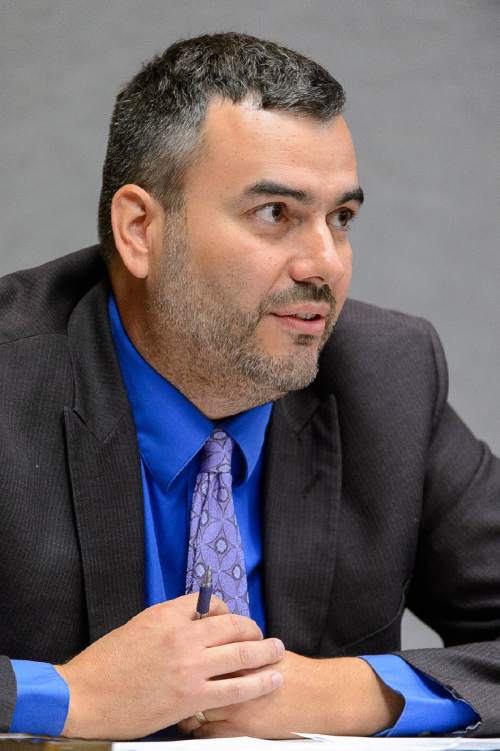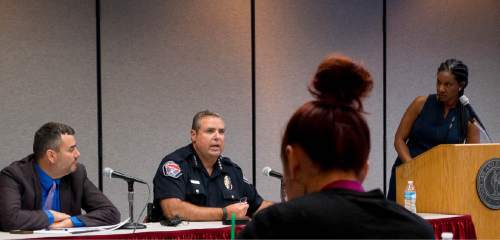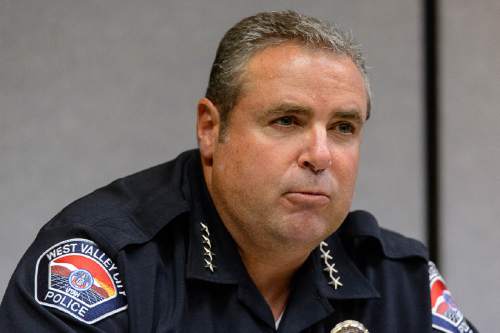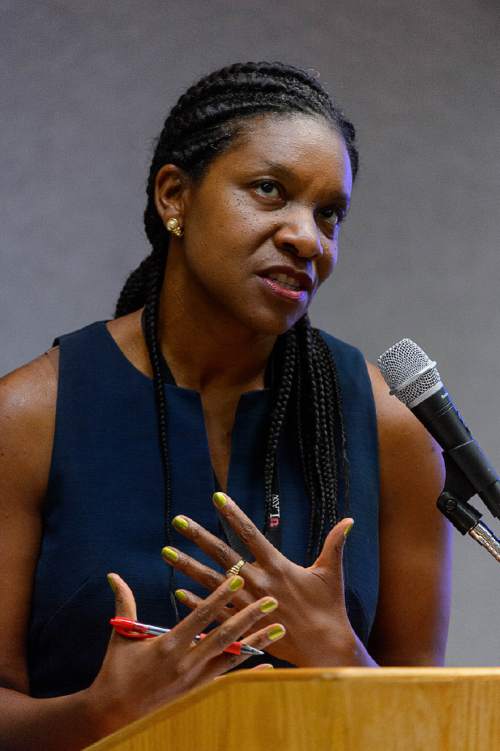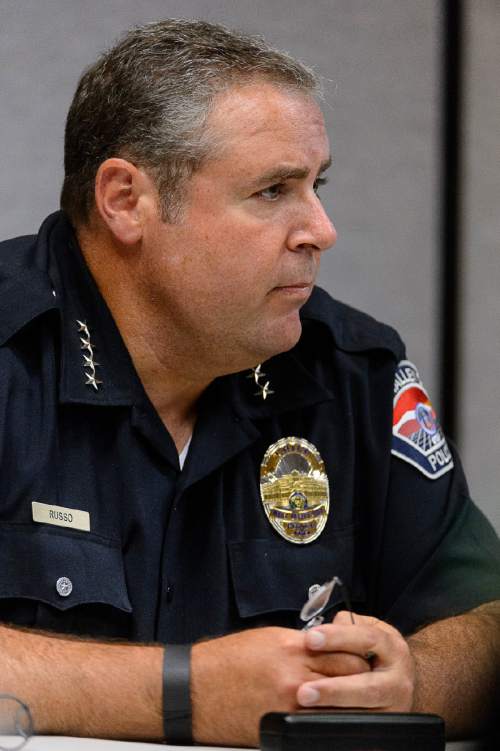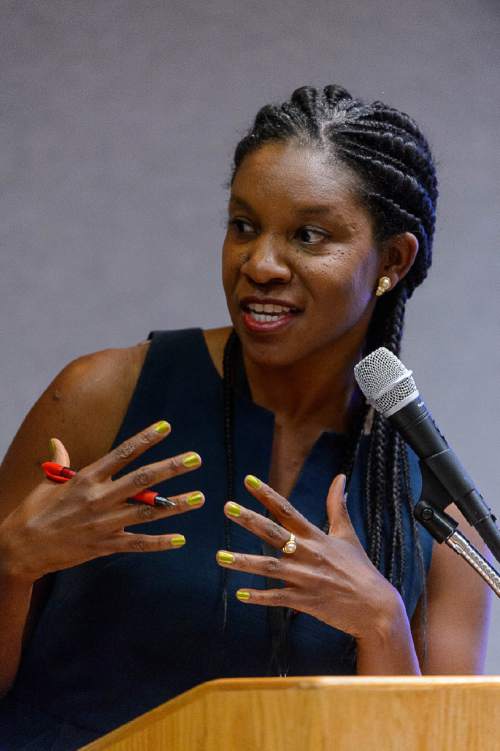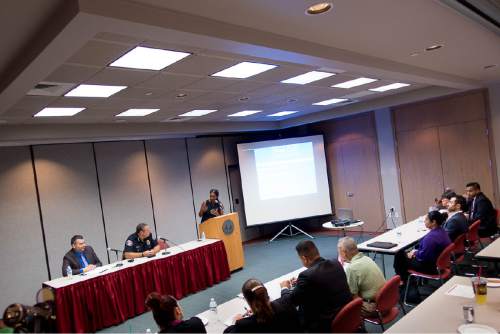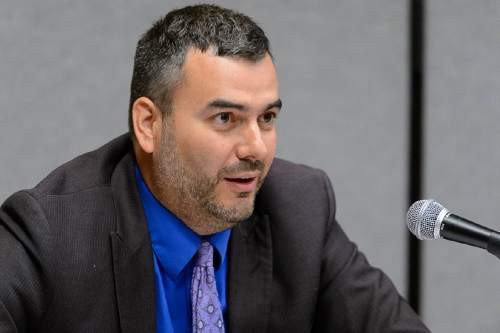This is an archived article that was published on sltrib.com in 2016, and information in the article may be outdated. It is provided only for personal research purposes and may not be reprinted.
West Valley City Police Chief Lee Russo hopes new language will help to reset attitudes about law enforcement held by officers and community members alike.
"We've seen some tensions already begin to pop up [over] use of force — or what we're trying to term 'response to resistance,' " Russo said at a panel discussion hosted Tuesday by the Utah Minority Bar Association in Salt Lake City.
Russo joined John Mejia, legal director for the American Civil Liberties Union of Utah, and University of Utah law professor Erika George in discussing police and community relations in a legal education session.
George, who moderated the discussion, asked whether Russo's change in terminology would actually result in tactical changes.
"Will it open up more space for not resorting to force?" she asked.
Russo said modern police training "talks about slowing things down; back away as opposed to driving things forward."
"You have to change your philosophy," Russo said. "It used to be when I started 30 years ago, the police were gonna win. We showed up, we were in control, we were gonna win. That's not the mentality today."
Mejia said more accountability and transparency are necessary for people to feel that police are not adversaries, especially in minority communities. He pointed to an ACLU study in 2015 of Utah police departments' complaint procedures.
"We were disappointed in the results," Mejia said, pointing out that some smaller departments appeared not to have a clear complaint procedure, with different personnel offering conflicting information.
Some departments said complaints could not be filed in Spanish, he noted, and one department reported investigating the immigration status of complainants.
"There should be no threats of any kind" for making a complaint of police misconduct, Mejia said.
He also pointed to a dearth of oversight: Of more than 100 police departments in Utah, only Salt Lake City's and West Valley City's have civilian review boards.
"I don't know why … there aren't oversight boards, why there shouldn't be a clear complaint process for police. City councils and county commissions are a bit too deferential sometimes, in my mind. That's not to say police don't have an important job and aren't experts in what they do, but the community should have a voice."


